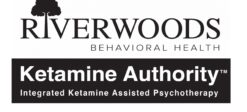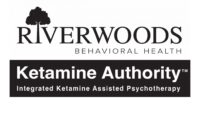Resources and Relevant Studies - Ketamine Facts
Ketamine for Depression: What to Know
............Ketamine may work in other ways in the brain, too.
Some nerve cells (neurons) in the brain involved in mood use a chemical (neurotransmitter) called glutamate to communicate with each other. The nerve cells need glutamate receptors -- think of them like catcher’s mitts for glutamate -- in order to join in this communication.
In the brains of some people with depression, those nerve cells don’t get so excited by glutamate anymore. It’s as if the glutamate receptors -- the catcher’s mitts -- are deactivated or weakened.
But after people with this particular problem receive ketamine, those nerve cell connections get restocked with new glutamate receptors. It’s as if ketamine helps make new catcher’s mitts for the glutamate, so that the nerve cells can respond to it again.
Research suggests that though ketamine’s main action is in glutamate receptors, it needs opioid receptors to have its antidepressant effects, too. For psychiatrist Alan Shatzberg, MD, who did some of the research that uncovered this, that’s concerning.
“It may not matter, but it does concern me, personally, that ketamine works through an opioid mechanism,” he says. The worry, which other researchers have mentioned in studies of ketamine, is that people might require larger and larger doses of ketamine over time in order to feel its effects -- as is the case with opioid painkillers. The spreading and tapering of treatments over time should help reduce this risk.
Of course, any comparison to opioids raises the question of the risk of addiction.
“I think it’s probably less addictive than opioids, but it’s not without its risks,” says Shatzberg, who is the director of Stanford University’s Mood Disorders Center. Indeed, case studies have described people who showed signs of addiction or abused the drug.
Because it’s an off-label treatment, it may be too soon to tell whether the risk of addiction or tolerance outweighs the possible benefits. It’s important to note though that some recommendations suggest it may not be safe for people who have a history of substance abuse. Many clinical trials have barred people with substance use problems.
It also may not be safe for people who have schizophrenia. “At the antidepressant dose, ketamine transiently worsens their symptoms of psychosis,” Krystal says.
Reshaping the Brain
As for the drug’s action on glutamate receptors: Regrowing and reactivating synapses helps the brain’s ability to change, which may help it shift out of depression. That may also explain why antidepressants or psychotherapy that didn’t help before ketamine may help afterward.
Before ketamine, Winograd says he only went to therapy because his family begged him to go. “After I started to feel better,” Winograd says, “my therapist started to make more sense.”
As for Coulter-Scott, she’s only four infusions into her six-dose treatment, and already she says she sleeps better at night. Trouble sleeping is a common symptom of depression. Raising her 4-year-old granddaughter on her own, she says, she still feels stress, but it doesn’t come along with the darkness and anxiety that she had lived with until now.
Costs and Insurance
Typically, the only ketamine treatment for depression that insurance will cover is the FDA-approved nasal spray called esketamine (Spravato).
Because the FDA has not approved IV ketamine for depression, most insurance doesn’t cover it. Without insurance coverage, an infusion costs about $450. That comes to about $3,000 to $4,000 for the research-based six infusions over 3 weeks. That doesn’t include boosters for whenever symptoms reappear.
“Some patients and some practitioners prefer the IV administration to the intranasal administration. But there are not compelling data to conclude that one is superior to the other or to predict who would benefit from one versus the other,” Krystal says.
Some people may not keep up with their treatments, especially if they can’t afford it or if their insurance doesn’t cover it. Stewart says that when people don’t return to his clinic for continued treatment, he doesn’t know whether it’s because they still feel good or because they can’t afford to come back.
Insurance disputes have prevented Winograd from getting a booster, even with the nasal spray, though he and his health care providers feel that he would benefit from it. Still, he says, the big changes that the first series of treatments brought about have lasted.
“That wasn’t a temporary change,” he says. “It was a shift in who I am, how I approach the world, and my feelings towards my own emotions.”
https://www.webmd.com/depression/features/what-does-ketamine-do-your-brain
Ketamine for major depression: New tool, new questions
What else should you know about ketamine?
- A much lower dose of ketamine is given for depression compared with the dose necessary for anesthesia.
- Like opioids, ketamine has addictive properties. It’s important to understand this when weighing risks and benefits. If you have a history of substance abuse –– such as alcohol or drugs –– it’s especially important for you and your doctor to consider whether ketamine is a good option for you.
- When IV (racemic) ketamine works, people usually respond to it within one to three infusions. If a person has no response at all, further infusions are unlikely to help. Instead, it’s probably best to try other treatments for depression.
- People who experience some relief from depression within one to three ketamine treatments are probably likely to extend these positive effects if the treatment is repeated several more times. The subsequent sessions may help prolong the effects of ketamine, rather than achieving further dramatic relief of symptoms. There are no standard guidelines for this. Many studies offer eight treatments initially (acute phase). After this, patient and doctor decide whether to taper or stop ketamine treatments or continue treatments at longer intervals.
https://www.health.harvard.edu/blog/ketamine-for-major-depression-new-tool-new-questions-2019052216673

